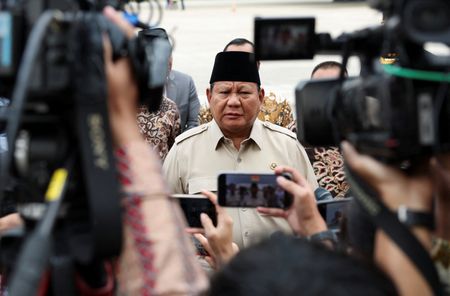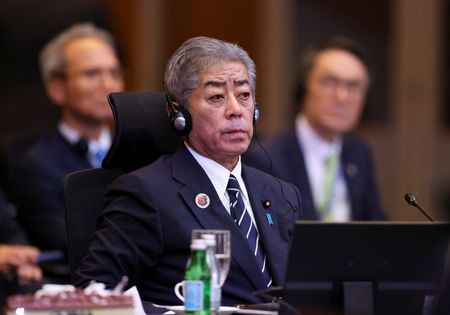SHANGHAI (Reuters) -Liquidity conditions in China’s interbank money markets showed signs of stress on Tuesday as seasonal cash demand kicked in, while the central bank’s move to lower the amount of cash banks must set aside as reserves has yet to come into effect.
Short-term primary money rates rose across the board, with volume-weighted average price of overnight repo traded in the interbank market surging to a high of 2.4505% in morning deals, the highest since February 2021, before trading at 2.4290% as of 0803 GMT.
The volume-weighted average price of seven-day repo also edged up by nearly 4 basis points to 2.2271%.
Traders said higher short-term money rates were driven up due to quarter-end demand for funds.
Companies and financial institutions usually have to shore up their cash positions towards the month-end and quarter-end for various needs and administrative requirements.
However, some market watchers said such tightness was unlikely to last as official liquidity support would take effect soon.
Monetary easing measures will come into effect and may help alleviate the tight funding conditions soon, said Ming Ming, chief economist at Citic Securities.
The People’s Bank of China (PBOC) said it would cut the reserve requirement ratio (RRR) for all banks by 25 basis points from March 27.
“The market will still need reverse repo operations to smooth the quarter-end funding squeeze,” analysts at RBC Capital Markets said in a note.
“This squeeze is not very obvious looking at the FX market,” they added, but noted onshore dollar funding costs were high.
Dollar funding strains have driven up onshore dollar borrowing costs, prompting some speculations of a possible cut to the amount of foreign exchange reserves that banks must hold to ease the pressure.
The overnight dollar borrowing cost in the onshore interbank market is trading at a premium of nearly 10 basis points to the SOFR, a Libor replacement preferred by the Federal Reserve, having risen above it since February.
(Reporting by Winni Zhou and Brenda Goh; Editing by Muralikumar Anantharaman and Jacqueline Wong)








